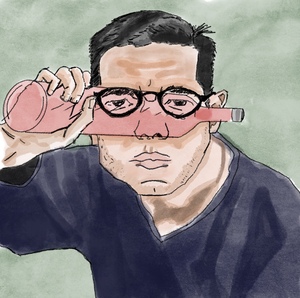
4.1 Why do people with schizophrenia turn to alcohol?
For many individuals with schizophrenia, alcohol becomes a coping mechanism in their attempts to self-medicate, ease social discomfort, and manage stress.

4.1 Why do people with schizophrenia turn to alcohol?
For many individuals with schizophrenia, alcohol becomes a coping mechanism in their attempts to self-medicate, ease social discomfort, and manage stress.
The social environment also plays a role. Being surrounded by alcohol, whether through social gatherings or community settings, can make it harder to avoid drinking. Some individuals may turn to alcohol to feel accepted or escape loneliness.
While alcohol may provide temporary relief, it ultimately worsens mental health problems, increasing the risk of dependence and making schizophrenia symptoms harder to manage.
How common is Alcohol Use Disorder in people with Schizophrenia?
Alcohol Use Disorder (AUD) is one of the most common co-occurring conditions in schizophrenia.

esearchers show that around 21% of people with schizophrenia have experienced alcohol use disorder at some point in their lives, and 11% are currently dealing with it.
2x
The WHO’s survey found that people with psychotic experiences are more than twice as likely to struggle with AUD as those without schizophrenia: 17.1% of those with psychotic experiences had a history of alcohol use disorder, compared to just 7.2% of those without such experiences.
This highlights the deep connection between alcohol use disorder and schizophrenia.
How does alcohol affect the brain?
Research has shown that alcohol triggers the release of dopamine, a brain chemical associated with pleasure and reward.
However, long-term alcohol use damages the dopamine system, making the brain less sensitive to pleasure. Even after quitting alcohol, these changes may persist, worsening schizophrenia symptoms.
This disruption in dopamine processing is closely connected to the development of psychotic symptoms in schizophrenia.
Why are mental health and alcohol use disorders so closely connected?
The connection between alcohol use disorder and other mental health conditions can be complex. It may result from:
Alcohol’s direct impact on mental health
Shared genetic or environmental factors
Overlapping traits between schizophrenia and alcohol dependence
A broader pattern of coexisting disorders that affect mood, behavior, and cognition
Research shows that risk factors for alcohol use disorder can emerge early, even before drinking becomes a problem.
These factors increase the likelihood of developing mental health issues, like anxiety, depression, and aggressive behavior.
The internalizing-externalizing framework helps explain how different mental health symptoms are related and why alcohol use disorder often coexists with schizophrenia.
“Internalizing” involves symptoms like sadness and anxiety.
“Externalizing” includes symptoms like aggression.
This model helps explain why people with alcohol use disorder often struggle with multiple mental health conditions, as they may share common underlying causes.
Why do some drinkers develop alcohol use disorder while others don’t?
A person’s genetic and biological characteristics help explain why not everyone who drinks develops Alcohol Use Disorder (AUD).
Researchers have identified specific genetic variations that can increase the risk of AUD, even in those who don’t consume large amounts of alcohol.
These genetic factors may help explain why some individuals transition from occasional or heavy drinking to full-blown addiction.
Understanding these variations opens new possibilities for targeted prevention and treatment strategies, making interventions more effective.
Does alcohol cause or worsen psychosis in schizophrenia or offer relief?
Alcohol does not directly cause schizophrenia. Research shows that people with schizophrenia often turn to alcohol after experiencing anxiety or psychotic symptoms.
This suggests that alcohol is often used as a coping mechanism for feelings of distress and anxiety rather than a trigger for symptoms.
What is Alcohol-Induced Psychosis, and how is it different from schizophrenia?
Acute alcohol intoxication, especially in individuals who are already vulnerable, and long-term misuse of alcohol can potentially lead to alcohol-induced psychosis.
Typically, alcohol-induced psychosis is triggered by alcohol withdrawal, a condition also known as alcohol withdrawal delirium.
Symptoms may include auditory and visual hallucinations and paranoia, but these typically resolve within 72 hours. It’s important to note that this condition is not the same as schizophrenia.
How are schizophrenia and alcohol use disorder linked?
Alcohol use in people with schizophrenia is influenced by a mix of genetic and biological factors, as well as life circumstances.
Genetic and family factors: Studies show that people with schizophrenia are more likely to develop alcohol problems if they have close relatives with Alcohol Use Disorder (AUD). However, schizophrenia itself is not more common in children of parents with AUD.
Biological influences: Many individuals with schizophrenia drink alcohol to selfmedicate, hoping to ease their symptoms, but alcohol often makes things worse. Brain chemistry also plays a role – changes in dopamine levels may make people more sensitive to alcohol’s rewarding effects, increasing the risk of addiction. Additionally, schizophrenia can impact impulse control and thinking abilities, making it easier to develop a drinking problem, even with small amounts of alcohol.
Social and environmental factors: Life challenges also contribute to alcohol use. Many people with schizophrenia struggle with stress, poverty, and loneliness, which may lead them to alcohol as a coping mechanism. Some use alcohol as a way to fit in socially or feel a sense of belonging. Additionally, changes in mental healthcare – such as moving away from hospital-based treatment to independent community living – can sometimes leave individuals with fewer job opportunities, less access to recreation, and limited social support, making alcohol more appealing.